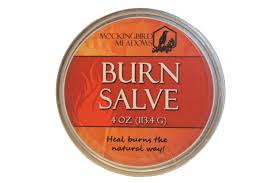
中文词源
salve 油膏,药膏,软膏
来自古英语 sealf,油膏,药膏,来自 West-Germanic*salbo,油性物质,来自 PIE*selp,脂肪,脂 物。
英语词源
- salve
-
salve: [OE] The central semantic element of modern English salve is ‘healing’, but its underlying etymological meaning is ‘oily substance’. It goes back to a prehistoric West Germanic *salbō, which had relatives in Greek élpos ‘oil’ and Sanskrit srpras ‘greasy’. The Germanic from has evolved into German salbe and Dutch zalf as well as English salve.
- salve (n.)
- Old English sealf "healing ointment," from West Germanic *salbo- "oily substance" (cognates: Old Saxon salba, Middle Dutch salve, Dutch zalf, Old High German salba, German salbe "ointment"), from PIE *solpa-, from root *selp- "fat, butter" (cognates: Greek elpos "fat, oil," Sanskrit sarpis "melted butter"). The figurative sense of "something to soothe wounded pride, etc." is from 1736.
- salve (v.1)
- Old English sealfian "anoint (a wound) with salve," from Proto-Germanic *salbojanan (cognates: Dutch zalven, German salben, Gothic salbon "to anoint"), from the root of salve (n.). Figurative use from c. 1200. Related: Salved; salving.
- salve (v.2)
- "to save from loss at sea," 1706, back-formation from salvage (n.) or salvable. Related: Salved; salving.
权威例句
- 1. After the feast she spent a week dieting to salve her conscience.
- 大吃了一顿之后,她花了一周时间节食以安慰自己.
- 2. I give myself treats and justify them to salve my conscience.
- 我常犒劳自己一番,然后找个说辞让自已良心稍安。
- 3. This is a salve containing menthol.
- 这是一种含有薄荷的药膏。
- 4. Administer the salve to the sunburned area with a cotton swab.
- 请用棉药签把药膏敷在晒伤的地方.
- 5. It was a sort of salve to her conscience.
- 那对她的良心是一种宽慰.